Charles E W Bean, Diaries, AWM38 3DRL 606/111/1 - May 1918 - Part 2
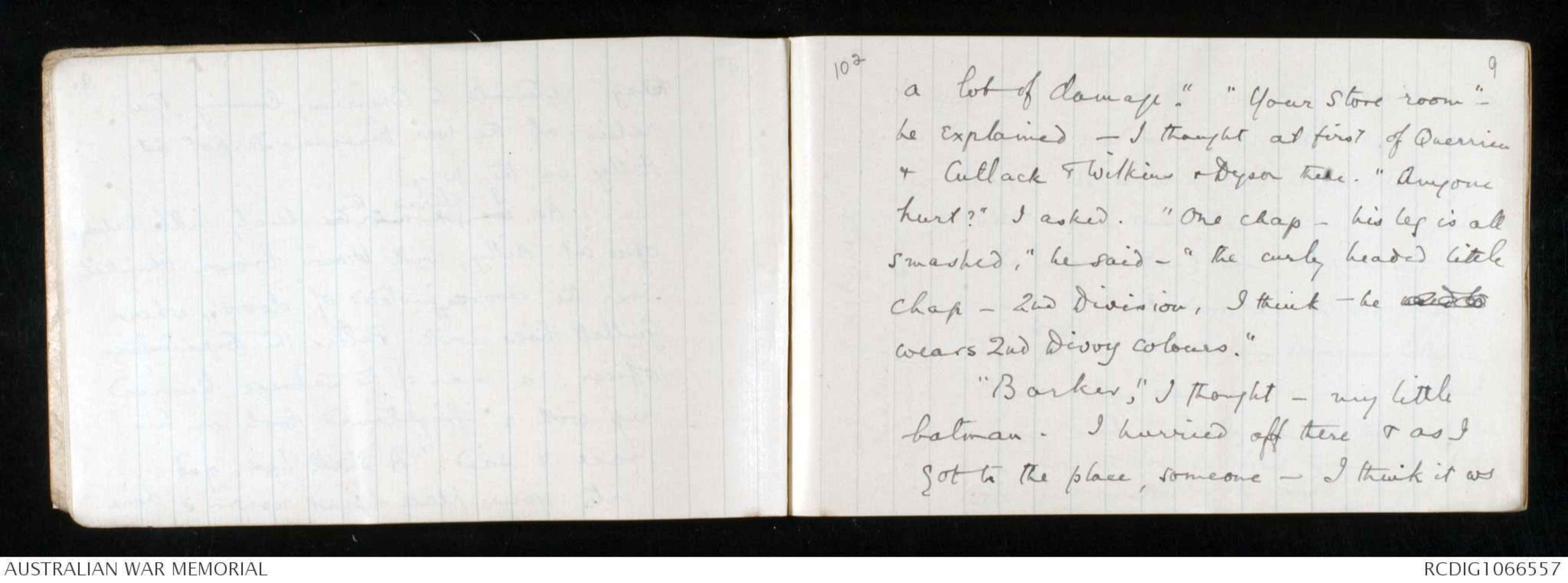
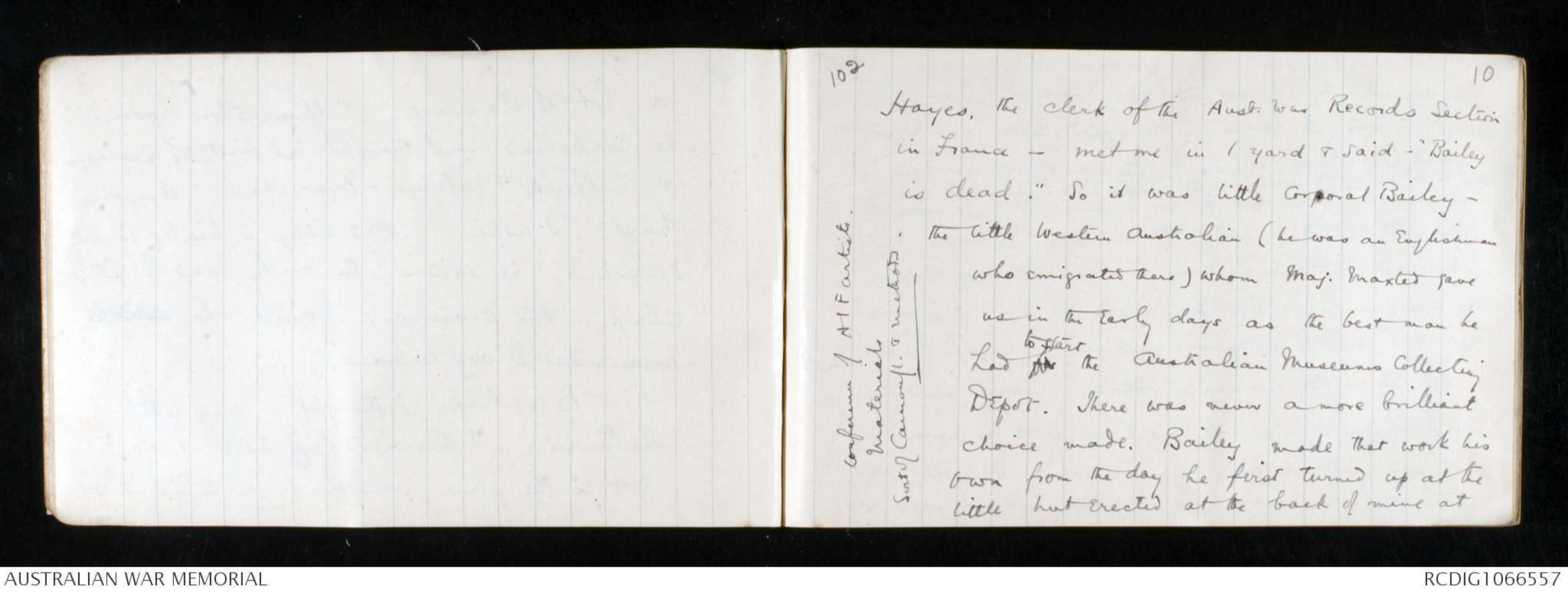
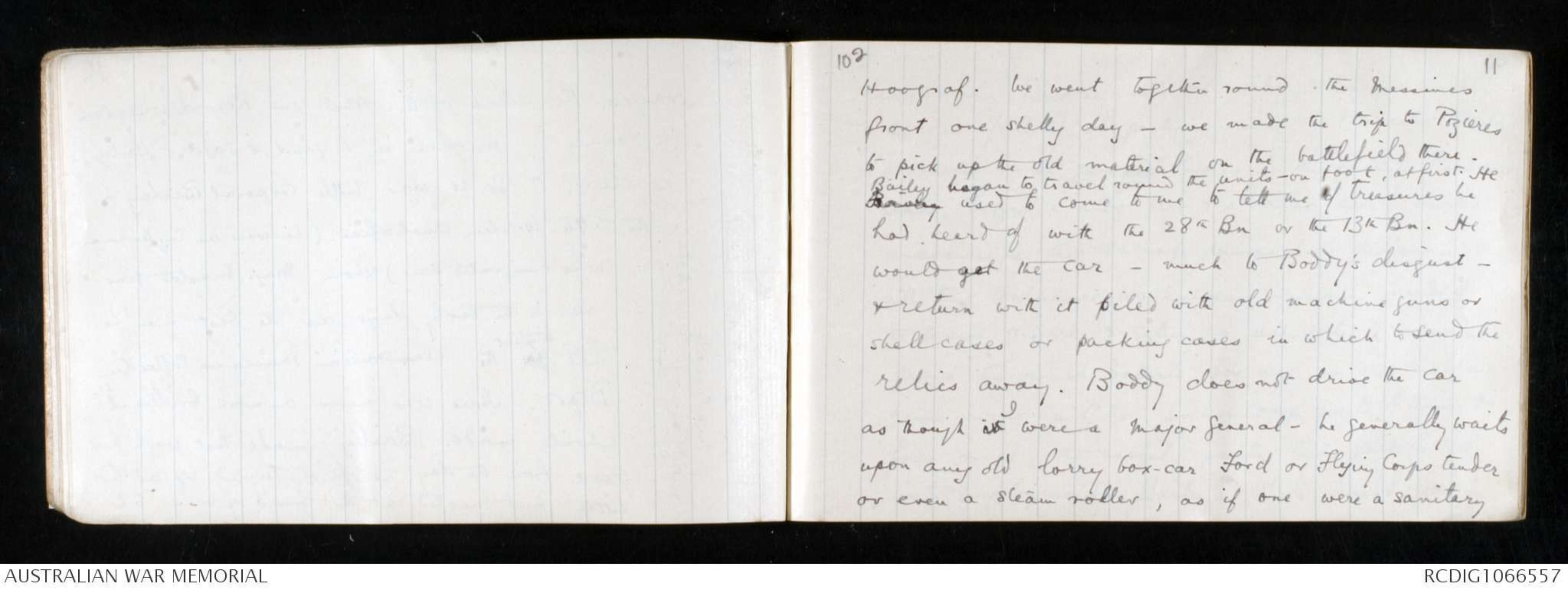
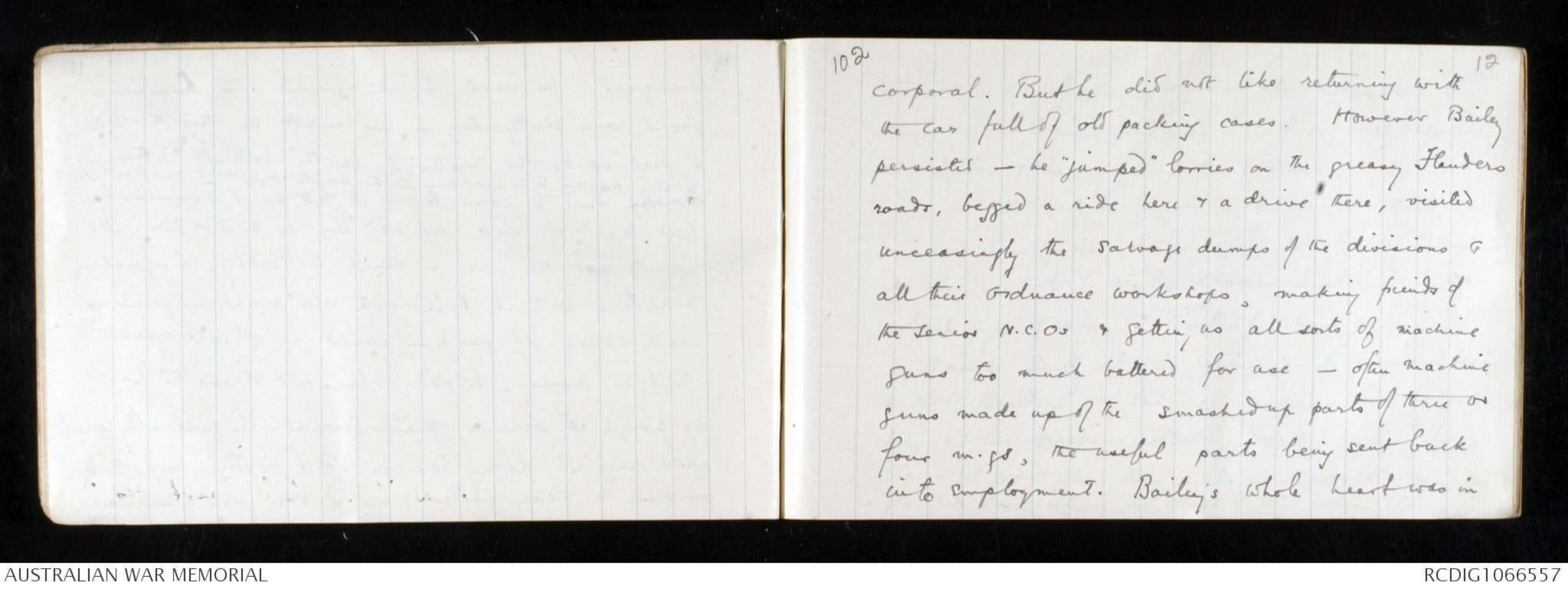
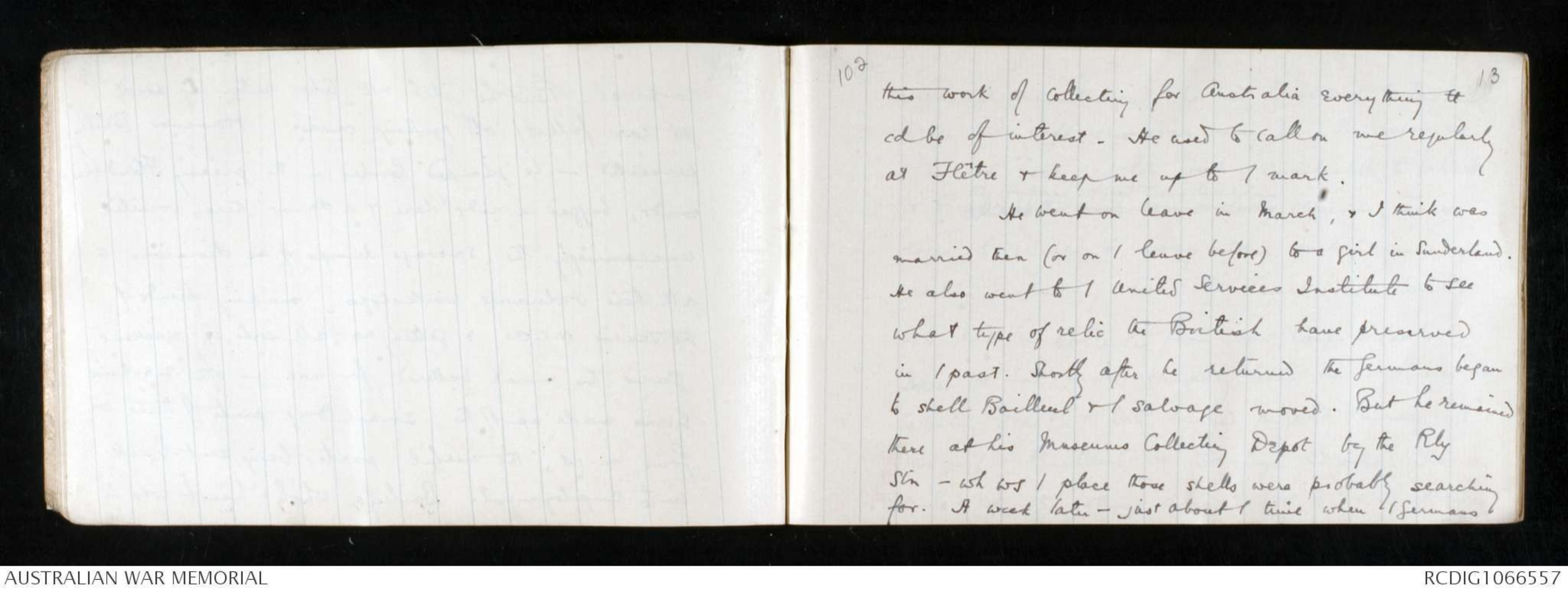
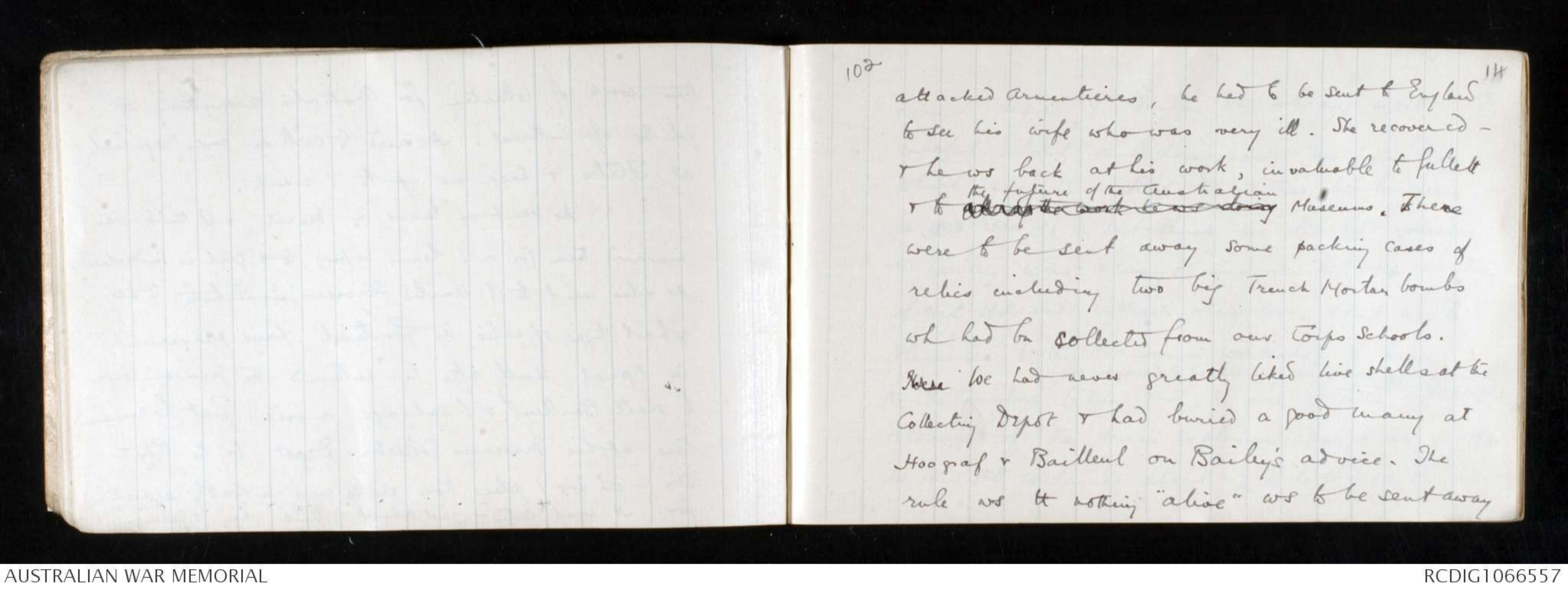
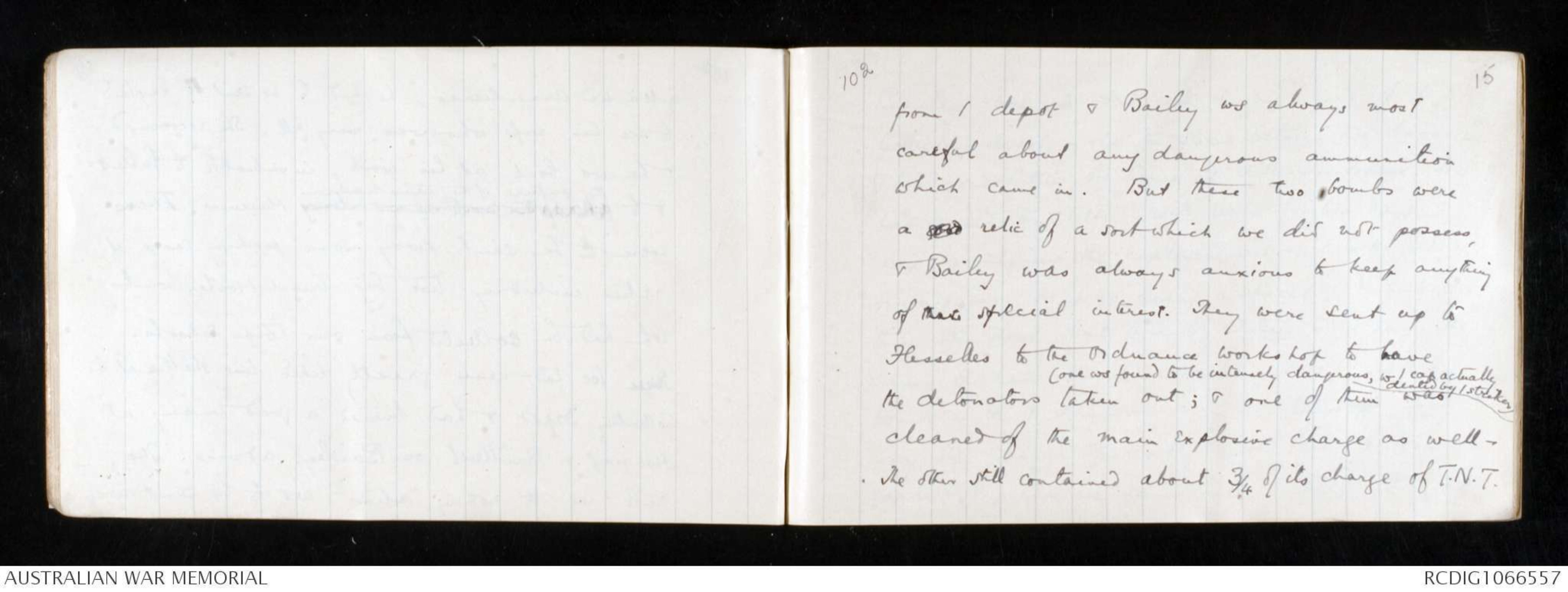
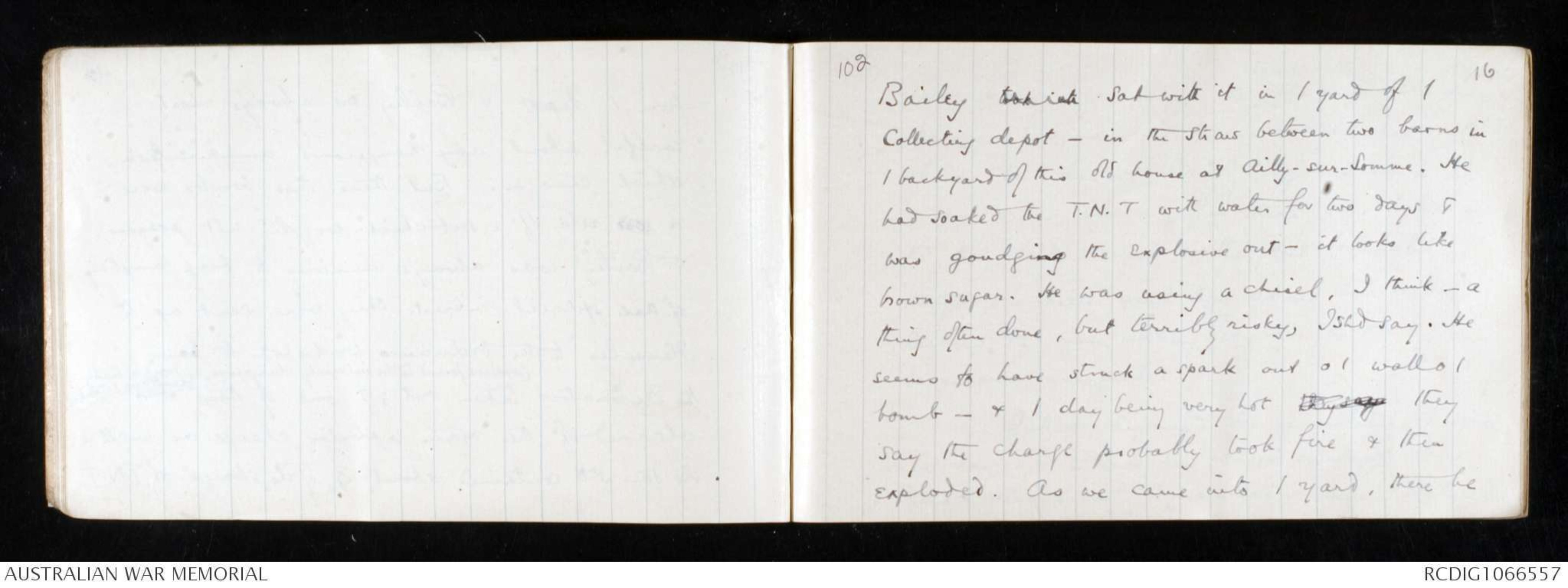
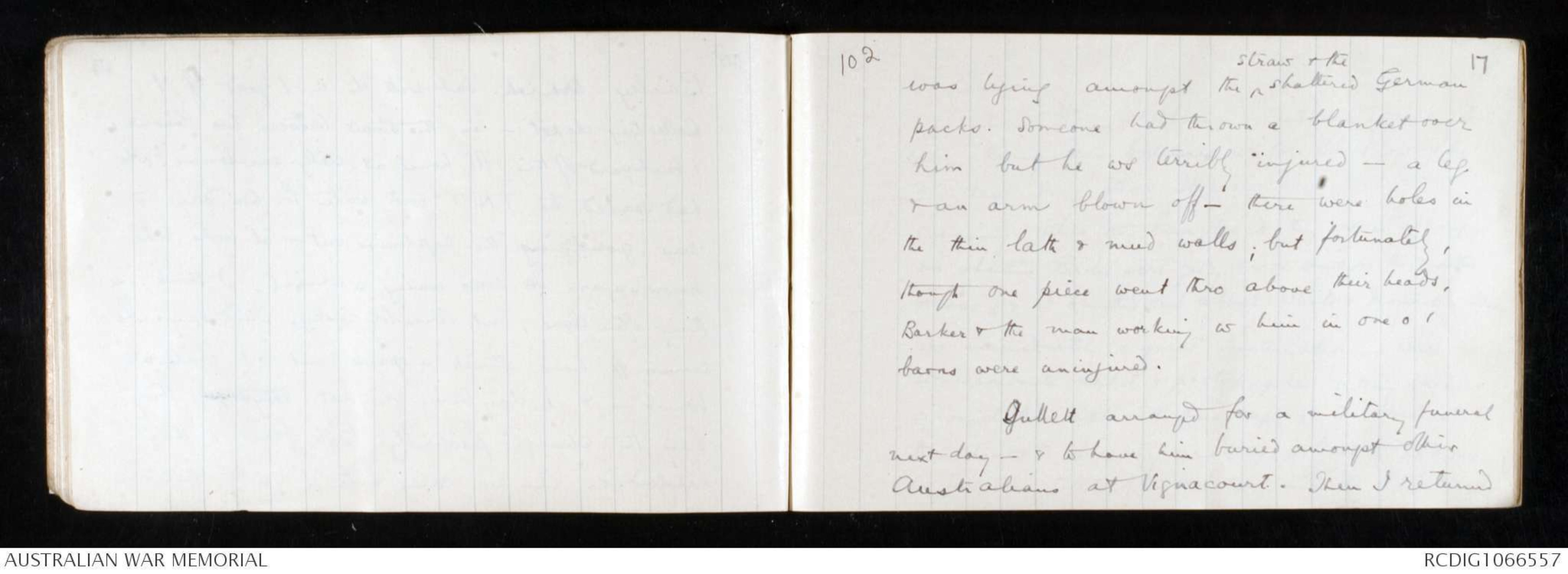
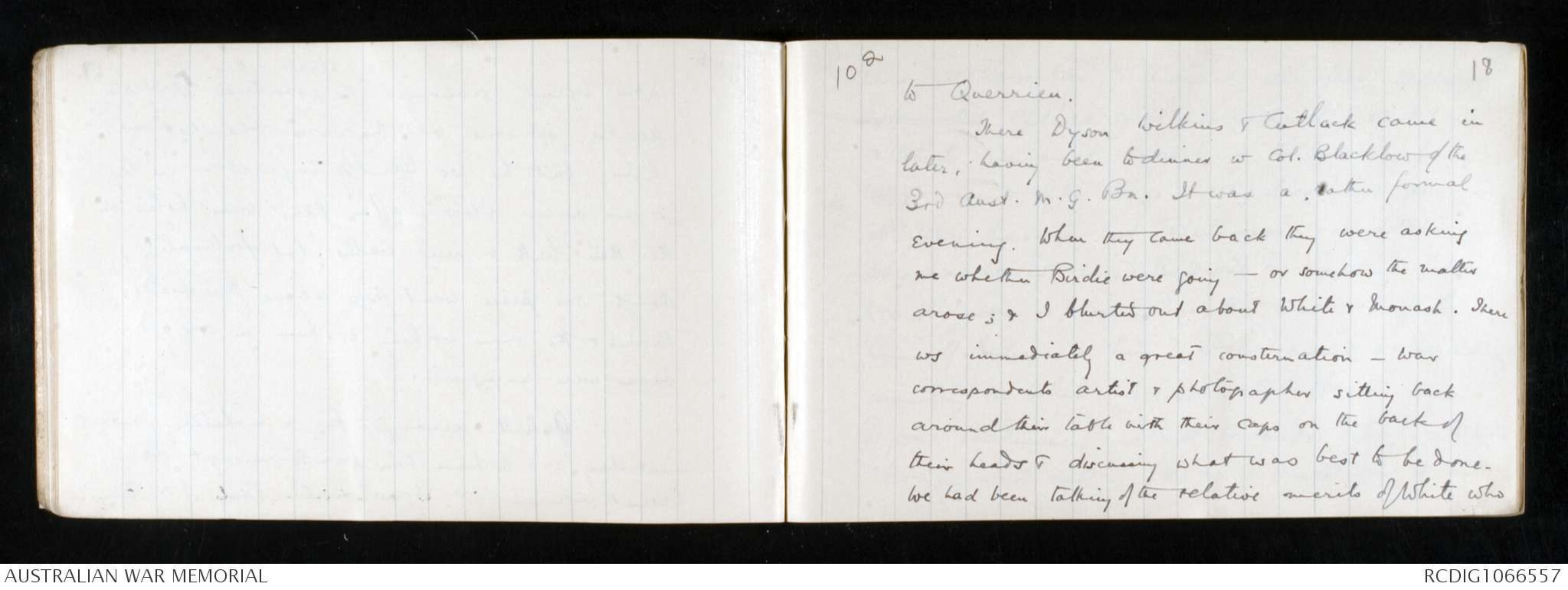
102 9
a lot of damage." "Your store room" -
he explained - I thought at first of Querrien
& Cutlack & Wilkins & Dyson there. "Anyone
hurt?" I asked. "One chap - his leg is all
smashed," he said - "the curly headed little
chap - 2nd Division, I think - he used to
wears 2nd Divvy colours."
"Barker," I thought - my little
batman. I hurried off there & as I
got to the place, someone - I think it ws
102 10
Hayes, the clerk of the Aust. War Records Section
in France - met me in / yard & said – "Bailey
is dead." So it was little Corporal Bailey -
the little Western Australian (he was an Englishman
who emigrated there) whom Maj. Maxted gave
us in the early days as the best man he
had for to start the Australian Museums Collecting
Depot. There was never a more brilliant
choice made. Bailey made that work his
own from the day he first turned up at the
little hut erected at the back of mine at
[*Conference of AIF artists.
Materials
Sort of Camoufl. & methods.*]
1
102 11
Hoograf. We went together round the Messines
front one shelly day - we made the trip to Pozieres
to pick up the old material on the battlefield there.
Bailey began to travel round the units - on foot, at first. HeBailey used to come to me to tell me of treasures he
had heard of with the 28th Bn or the 13th Bn. He
would get the car - much to Boddy's disgust -
& return with it piled with old machine guns or
shell cases or packing cases in which to send the
relics away. Boddy does not drive the car
as though it I were a Major General - he generally waits
upon any old lorry box-car Ford or Flying Corps tender
or even a steam roller, as if one were a sanitary
102 12
corporal. But he did not like returning with
the car full of old packing cases. However Bailey
persisted - he "jumped" lorries on the greasy Flanders
roads, begged a ride here & a drive there, visited
unceasingly the salvage dumps of the divisions &
all their ordnance workshops, making friends of
the senior N.C.Os & getting us all sorts of machine
guns too much battered for use - often machine
guns made up of the smashed up parts of three or
four m.gs, the useful parts being sent back
into employment. Bailey's whole heart was in
102 13
this work of collecting for Australia everything tt
cd be of interest. He used to call on me regularly
at Flětre & keep me up to / mark.
He went on leave in March, & I think was
married then (or on / leave before) to a girl in Sunderland.
He also went to / United Services Institute to see
what type of relic the British have preserved
in / past. Shortly after he returned the Germans began
to shell Bailleul & / salvage moved. But he remained
there at his Museums Collecting Depot by the Rly
Stn - wh ws / place those shells were probably searching
for. A week later - just about / time when / Germans
102 14
attacked Armentieres, he had to be sent to England
to see his wife who was very ill. She recovered -
& he ws back at his work, invaluable to Gullett
& to always the work he ws doing the future of the Australian
Museums. There
were to be sent away some packing cases of
relics including two big Trench Mortar bombs
wh had bn collected from our Corps Schools.Here We had never greatly liked live shells at the
Collecting Depot & had buried a good many at
Hoograf & Bailleul on Bailey's advice. The
rule ws tt nothing "alive" ws to be sent away
102 15
from / depot & Bailey ws always most
careful about any dangerous ammunition
which came in. But these two bombs were
a gd relic of a sort which we did not possess,
& Bailey was always anxious to keep anything
of that special interest. They were sent up to
Hesselles to the Ordnance workshop to have
(one ws found to be intensely dangerous, w / cap actually
dented by / striker)
the detonators taken out; & one of them was
cleaned of the main explosive charge as well -
The other still contained about 3/4 of its charge of T.N.T.
102 16
Bailey took it sat with it in / yard of /
Collecting depot - in the straw between two barns in
/ backyard of this old house at Ailly-sur-Somme. He
had soaked the T.N.T with water for two days &
was goudging the explosive out - it looks like
brown sugar. He was using a chisel, I think - a
thing often done, but terribly risky, I shd say. He
seems to have struck a spark out o / walls o /
bomb - & / day being very hot they say they
say the charge probably took fire & then
exploded. As we came into / yard, there he
102 17
was lying amongst the ^straw & the shattered German
packs. Someone had thrown a blanket over
him but he ws terribly injured - a leg
& an arm blown off - there were holes in
the thin lath & mud walls; but fortunately,
though one piece went thro above their heads,
Barker & the man working w him in one o /
barns were uninjured.
Gullett arranged for a military funeral
next day - & to have him buried amongst other
Australians at Vignacourt. Then I returned
102 18
to Querrien.
There Dyson Wilkins & Cutlack came in
later, having been to dinner w Col. Blacklow of the
3rd Aust. M.G. Bn. It was a rather formal
evening. When they came back they were asking
me whether Birdie were going – or somehow the matter
arose; & I blurted out about White & Monash. There
ws immediately a great consternation - war
correspondents artist & photographer sitting back
around their table with their caps on the back of
their heads & discussing what was best to be done.
We had been taking of the relative merits of White who
 Deb Parkinson
Deb ParkinsonThis transcription item is now locked to you for editing. To release the lock either Save your changes or Cancel.
This lock will be automatically released after 60 minutes of inactivity.